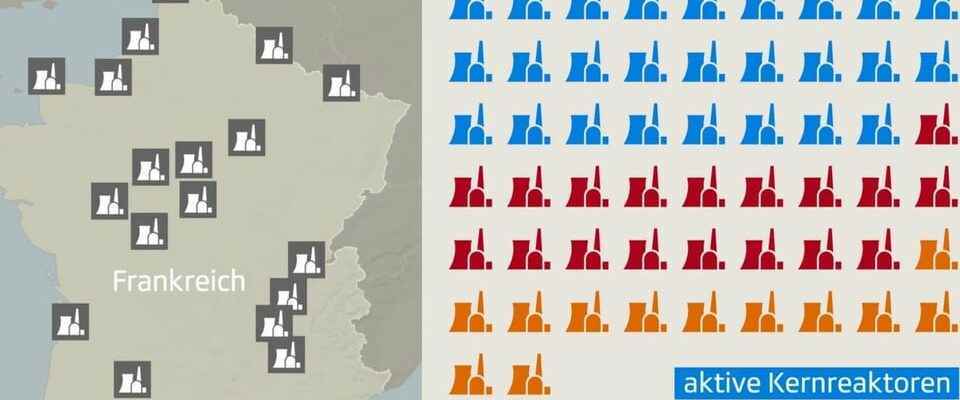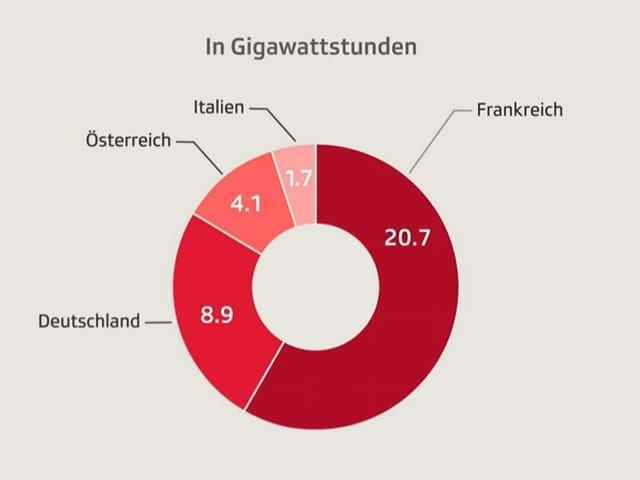contents
France has to import electricity for the first time: more than half of the reactors have been out of operation for months.
Cheap electricity in abundance thanks to nuclear power – a promise that is as certain for the French as amen in church. But this security is now in danger of tipping over: 56 reactors at 18 locations are spread across the country and normally supply France with so much electricity that there is still enough left over for European neighbors in the summer.
But 18 reactors have been idle for months due to long-announced maintenance work. An additional twelve reactors were shut down in the past few weeks: They showed signs of corrosion damage that first had to be repaired.
Legend:
A total of 56 nuclear reactors are located in France at 18 sites. Of these, 30 reactors are currently shut down due to long-term maintenance work (red) or due to corrosion damage (orange).
SRF
This does not come close to covering the country’s energy requirements. The safety authority of the nuclear power plants ASN has granted the operator EDF a special permit to keep reactors in operation, which should actually be switched off at the moment due to the persistent heat, because the output of their water cycle heats the adjacent rivers too much.
There will likely be planned power outages to conserve energy.
The result: for the first time in its history, France has to import a good 20 percent of its electricity in the summer. According to nuclear specialist Yves Marignac, these are not good omens for the coming winter. “It’s an absolute first that so many nuclear power plants aren’t working at the same time. Then there is the energy crisis caused by the war in Ukraine.”
It is clear that France will experience a fairly large energy crisis in the winter. “I think a total blackout can be avoided, but there will likely be planned power outages to conserve energy,” Marignac said.
Operator EDF had already warned in February that reduced power capacities were to be expected due to maintenance work in 2022. But the aging installations of France’s forty-year-old nuclear power plant park are constantly creating new problems.
One of them is the EPR at Flamanville, a new reactor that should have started operating as early as 2012. But the former prestige project has long been the talk of the town only for structural damage and record costs. Errors in the control system were only discovered last week, which again make repairs necessary. Nevertheless, EDF firmly believes in a possible commissioning in 2023.
Nuclear specialist Marignac is skeptical: “Before the EPR can go online, a lot of tests have to be carried out. The problem is that many of the components already installed have already aged due to the constant delays – although they have not yet been used. Maybe one day the EPR will be connected, but it will never be competitive. Economically, it’s a disaster.”

